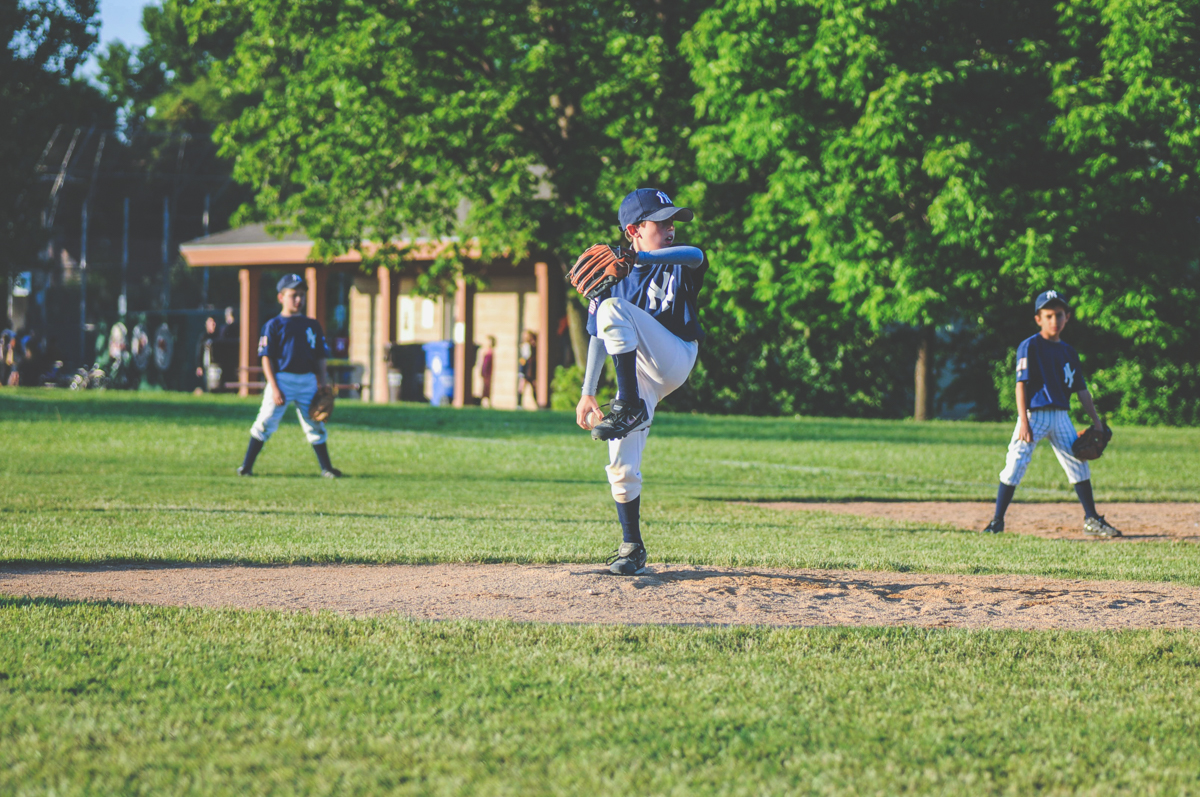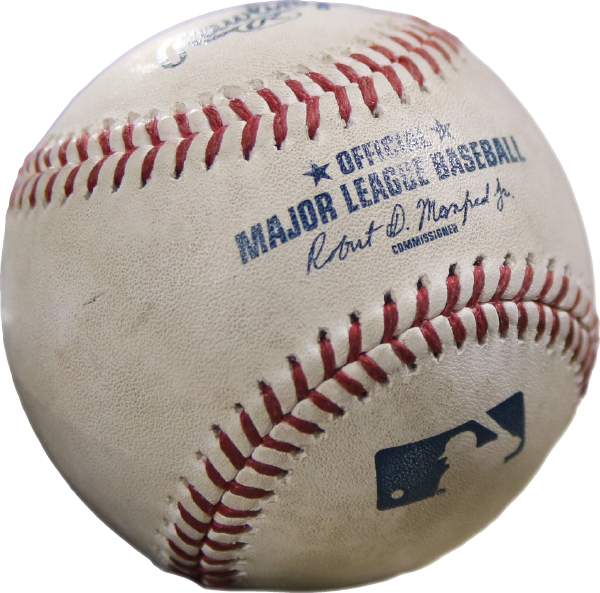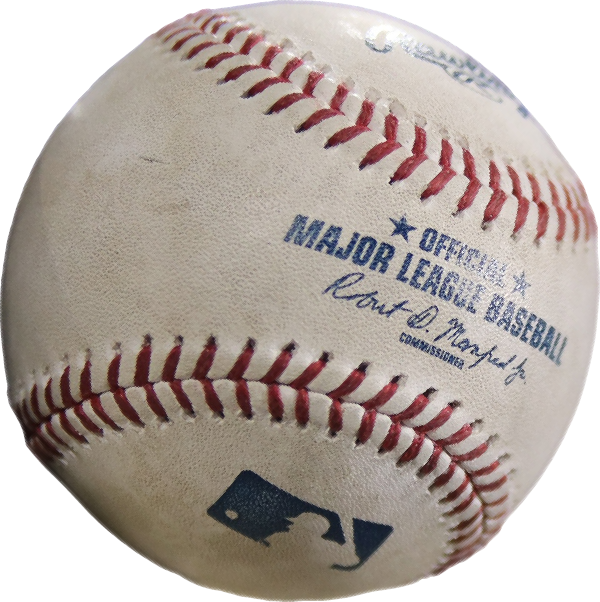Parenting a Little League Baseball Player
I have three boys, two of whom play baseball. While we love the sport, and they spend half the year training and playing it, the stress of parenting a little league baseball player can definitely take its toll.
It’s not just the carpooling and ever-shifting schedules of practices, games and team meetings that are challenging. The politics of little league baseball, as well as baseball for teenagers, which is played on the larger diamond (in my hometown, it’s called “Babe Ruth Baseball”), can be difficult to deal with.
Generally speaking, true Little League baseball officially only runs until age 12. Once players are beyond this age, they must play on a larger field, with a longer distance from the mound to the plate and between bases. Additional information on the rules and ages is included below.
Parenting a little league baseball player takes patience, humility, tact and humor! After having been a baseball parent for the past 10 years, and with a child going into high school this fall, we have had our share of sitting in the stands with parents who do not share our philosophies, children that are not disciplined, and working with a coach that used to be a Major League Baseball player.
Read on for some tips on how to be a baseball parent – and best of luck to you and your child!
Common Complaints in Youth Baseball
Among the various complaints lodged by baseball parents include:
- Not enough playing time
- Played in the wrong position
- Other players not performing their expected roles
- Poor umpiring
- Too many or not enough practices
- Practices at an inconvenient time
- Not enough competent volunteers
- Poor coaching
- Coach’s child getting too much playing time and/or in the wrong position
- Uniforms too expensive, not nice enough, wrong size, wrong color, etc.
- Program too expensive
- Not enough or too much travel
What is Little League Baseball?
In general, Little League baseball is open to boys and girls between the ages of 4-18, with differing divisions for age groups and sexes. From 1951-74, Little League baseball was only open to boys, but in 1974 the rules were revised to allow girls in the program. Thanks to Title IX!
It is a 501(c)(3) non-profit organization, founded in 1939, with the stated mission, “to promote, develop, supervise, and voluntarily assist in all lawful ways, the interest of those who will participate in Little League Baseball.”
Little League baseball was granted a Federal Charter in the United States on July 16, 1964. See Title 36 of the United States Code.
Here in the United States, the Little League has three components:
- administrative/service;
- district; and
- local Little League.
No matter where you live or play ball, these three aspects of the organization are consistently represented.
The highlight of Little League Baseball is the world series, which is held annually in South Williamsport, Pennsylvania. Teams participate in state and regional elimination tournaments most of the summer, leading up to the World Series in the middle of August.
Last year, two youth baseball teams from my hometown of Bend, Oregon were in the final, championship regional games losing right before advancing to national tournament play!
What to Expect as a Youth Baseball Parent
My children have played baseball, soccer, basketball, gymnastics, tennis and lacrosse. I have found that there is no sport that is more politicized than baseball. My two older boys, ages 14 and 12, have played on little league teams and travel baseball/select teams for the past 3 years. There are significant differences between little league and travel/select ball, but both organizations are very political.
In our hometown, little league is open to anyone, regardless of experience or financial means. On the other hand, travel baseball, as well as All-Star teams require try-outs and selection.
Starting at age 8, parents hope that their child will be selected for the Little League All-Star team at the end of the season, whether for baseball or softball. Post-season play is usually more competitive and, as the teams advance, statewide, regional, or even national play can be expected throughout the summer.
Players in the 12U (ages 12 and under) division of All-Stars can hope to make it to the Little League World Series each year. At this level of play, the organization demands proof of age via birth certificates, proof of residence and use of “legal” bats and balls.
Rules seem to change each year on the approved baseball equipment. Parents should consult with the coaching staff before purchasing a bat to ensure that it is appropriate and approved for the age and sex of the player. Gear is inspected by both teams before any Little League or travel ball tournament play.
Code of Conduct for Baseball Parents
Now, I know that some leagues and other baseball organizations have official “codes of conduct” for players, parents and other spectators.
If your child’s team has one, please do read it and abide by it – not only during the season, but year-round!
My own suggested code of conduct for baseball parents includes the following rules:
- Communicate with the coaches and other parents. If your child is sick or injured let people know so that replacements can be found, if necessary. If you are frustrated with the way things are going, don’t complain about it behind everyone’s backs. Be direct and honest.
- Ensure that your child makes it to scheduled practices and games. Baseball is a team sport. Other players on the squad need to be able to work with all players in their designated positions.
- Own, borrow or rent proper equipment. It puts a strain on the team if your child is always borrowing helmets, gloves, bats or catching gear.
- Contribute as required financially and/or via donations. Be aware of the financial obligations before your child signs up or tries out. Tournament fees, travel, etc. can really add up. Be prepared before the season so that the team can ensure it has enough players throughout the year.
- Trust the coaches. This one is difficult, even for me! While it is true that some coaches play favorites and may give their child more playing time in a coveted position, keep in mind that they are likely volunteering their time. Moreover, strategies cannot always be ascertained. If you are concerned about bench time for your child, let the coach know, but be respectful.
- Be respectful. This has to follow the previous tip. If your emotions are running over, take a deep breath and wait before saying something. Respect the coaches, the other parents, all the players on the team and, perhaps most importantly, the players, coaches and parents on the other team! Don’t yell at the umpires, either. Walk away from annoying fans on the other team. Model good sportsmanship for your child.
- Follow rules. If the field says that there are no dogs allowed, leave Fido at home. No flash photography? Then shut it off. Things will go much more smoothly if you don’t find yourself on the defensive at a game.
- Be prepared. Be sure to send plenty of water to practices and games. Include approved snacks, if allowed. Check your child’s bat bag to make sure they have everything they need before arriving to a game or practice.
This article was originally published on We Have Kids — read the original article here.



